Culinary Quality Black Ants
$6.95 – $285.00 — available on subscription
With their powerful citrus flavor, it’s easy to understand why Black Ants are a favorite among top chefs. That burst of citrus along with a nice light crunch creates a pleasant surprise. Used as a replacement for lemon or lime, a simple dish becomes a culinary adventure few will ever forget.
Package Size:
1+ Gram Vial
1/2 Oz Jar (about 15 grams)
Pack of 8 Vials
1 Pound Grip Jar
CULINARY QUALITY
EDIBLE BLACK ANTS
Scientific Name: Lasius niger
Serving Size: 1/5 Gram / 10 to 12 ants
Shelf Life: 2-3 Months at room temperature. 6 months if refrigerated.
GOURMET BLACK ANTS
With their powerful citrus flavor, it’s easy to understand why Black Ants are a favorite among top chefs. That burst of citrus along with a nice light crunch delivers a pleasant surprise guests love. Use as a replacement for lemon or lime, a simple dish becomes a culinary adventure few will ever forget.
Adding to their appeal is the fact that the ants are small enough that they do not immediately look like a bug. And, to top it off, they’re a glossy black color adding a bit of drama to any dish.
These little nutritional powerhouses boast the highest bio-available source of Zinc of any plant or animal. They’re high in antioxidants and are considered anti-inflammatory. They’re a natural source of B vitamins along with vitamins C, D, and E. They offer over twenty minerals beyond zinc including Iron, Manganese, Potassium, Phosphorus, Calcium & Selenium.
So, if you want to make an impression with your next meal, try a sprinkle of Black Ants. Your guests will love it, and they’ll talk about it for years to come.
Get ready for social media activity.
SERVING SIZE:
Although it may seem like a gram is not much, it’s more than enough for two or three family meals or for a large tray of snacks. Each ant is packed with flavor and it only takes a few ants to experience a burst of citrus in a single bite.
![]()
A Chef’s Guide to Black Ants: Culinary Adventures with Nature’s Delicacies
In the ever-evolving world of gastronomy, chefs and food enthusiasts are constantly seeking innovative ingredients to elevate their culinary creations. One such ingredient making waves in the culinary scene is the black ant. Known for their tangy, citrus-like flavor, black ants have been a part of traditional cuisines in various cultures for centuries and are now gaining popularity in modern gourmet kitchens. This guide explores how chefs can creatively incorporate black ants into their dishes, turning them into a conversation starter and an unforgettable dining experience.
Understanding Black Ants in Cuisine
Black ants, particularly those harvested for culinary use, are prized for their ability to add a unique, acidic zing that can enhance the flavors of a dish. This distinct taste is due to the formic acid they contain, which offers a surprising burst of flavor that can be likened to a natural seasoning.
Accentuating Flavors
Black ants can be used as a garnish or an integral part of a dish to add a burst of flavor. Their tangy taste pairs well with fresh vegetables, fruits, and even meats, offering a novel way to enhance these ingredients’ natural flavors.
Textural Contrast
Aside from their taste, black ants can also add an intriguing crunch to dishes. Sprinkling them over salads, soups, or even desserts can introduce a delightful textural element that elevates the dining experience.
Visual Appeal
The striking appearance of black ants can add visual interest to a plate, making dishes more appealing and engaging. Their dark color provides a beautiful contrast against lighter ingredients, turning a simple dish into a work of art.
Ingredient Pairings
Black ants’ citrusy flavor makes them a versatile ingredient that can complement a wide range of foods. They are particularly effective in cutting through the richness of fatty meats or adding complexity to sweet dishes. Experimenting with black ants can lead to innovative pairings and flavor profiles previously unexplored.
Ethical and Sustainable Considerations
Incorporating black ants into cuisine also touches on ethical and sustainable food practices. As a protein source, insects are more environmentally friendly than traditional livestock, requiring less water, food, and space to produce. By choosing to use black ants in dishes, chefs can contribute to more sustainable gastronomy.
Conclusion
Black ants are more than just an exotic ingredient; they offer chefs the opportunity to explore new flavor profiles, textures, and visual presentations in their culinary creations. Whether used as a subtle accent or a central component, black ants can transform ordinary dishes into extraordinary experiences, challenging diners’ perceptions and delighting their palates. As the culinary world continues to embrace sustainable and innovative ingredients, black ants stand out as a testament to nature’s bounty and the limitless possibilities of gastronomy.
![]()
The Amazing World of Black Ants and How it Affects Us All
Ants are one of the most successful and fascinating insects on our planet, and black ants, in particular, have earned a special place in the ecosystem and human imagination due to their remarkable abilities and behaviors. These tiny architects and relentless foragers play a crucial role in the environment, contributing to soil aeration, seed dispersion, and even pest control. This article delves into the incredible world of black ants, shedding light on their social structure, communication, and the reasons behind their success as a species.
Ingenious Architects and Ecological Engineers
Black ants are master builders, creating intricate nests that can extend deep into the ground or sprawl across the surface with multiple chambers and tunnels. These nests are not just shelters but are a testament to the ants’ ability to work collectively towards a common goal. The architecture of an ant colony facilitates ventilation, temperature regulation, and defense, showcasing a level of engineering that is remarkable for such small creatures.
Moreover, by digging tunnels and moving soil, black ants play a vital role in aerating the earth, which helps to improve soil quality and water infiltration. This activity is crucial for plant growth and health, making ants essential players in maintaining the balance of ecosystems.
Social Structure and Division of Labor
One of the most fascinating aspects of black ants is their highly organized social structure, characterized by a clear division of labor. A typical colony consists of a queen, male ants, and female workers. The queen’s primary role is to lay eggs, ensuring the colony’s survival and growth. Male ants are responsible for mating with the queen, and the worker ants – the backbone of the colony – forage for food, care for the queen’s offspring, defend the nest, and maintain and expand the nest.
This division of labor is a key factor in the success and efficiency of ant colonies, allowing them to adapt and thrive in various environments. Worker ants communicate and coordinate their efforts through a complex system of chemical signals, or pheromones, which enables them to respond to challenges and opportunities in their environment with astonishing speed and efficiency.
Masters of Communication
Communication is crucial in the ant world, and black ants are masters of it. Through the use of pheromones, they can alert the colony to food sources, signal danger, and even guide other ants to specific locations. This chemical language allows ants to operate as a unified entity, often referred to as a superorganism, where the colony as a whole adapts and responds to its environment rather than individual ants.
Environmental Impact and Human Interaction
Beyond their architectural and social achievements, black ants have a significant impact on the environment. They are nature’s clean-up crew, breaking down dead organic matter and controlling populations of other pests. Furthermore, ants are vital in the pollination process for many plants and the dispersal of seeds, contributing to the health and spread of countless plant species.
Humans have long been fascinated by ants, studying their behavior to gain insights into communication, teamwork, and management. The efficiency and resilience of ants inspire innovations in robotics, computer algorithms, and organizational theory, proving that even the smallest creatures can have a profound impact on the world.
Conclusion
Black ants are more than just common insects; they are an integral part of the ecosystem and a source of endless fascination. Their complex societies, communication skills, and environmental contributions highlight the interconnectedness of life and the importance of even the smallest organisms in maintaining the balance of our planet. As we continue to explore and understand the amazing world of black ants, we are reminded of the incredible diversity and resilience of life on Earth.
![]()
Why Ants Are Good for Your Garden
Ants are often overlooked or considered pests, but they play an essential role in the health and vitality of our gardens. These industrious insects offer numerous benefits that can enhance plant growth, improve soil quality, and maintain ecological balance. Here’s why ants are good for your garden:
Natural Soil Aeration and Fertilization
Ants are nature’s tillers. Their constant tunneling creates a network of passageways that aerate the soil, allowing oxygen, water, and nutrients to reach plant roots more effectively. This natural aeration promotes healthier and more robust plant growth. Additionally, as ants decompose organic matter in their nests, they contribute to the fertilization of the soil, enriching it with essential nutrients.
Pest Control Agents
Ants can be a gardener’s ally in controlling pest populations. Many ant species feed on the eggs and larvae of common garden pests, such as caterpillars and termites, helping to keep their numbers in check. By reducing the reliance on chemical pesticides, ants contribute to a more natural and balanced garden ecosystem.
Seed Dispersal
Some plants rely on ants for seed dispersal, a symbiotic relationship known as myrmecochory. Ants transport seeds to their nests, where they consume the nutritious seed coat and discard the seed itself in a fertile environment, often ideal for germination. This process helps in the propagation of various plant species, contributing to a diverse and healthy garden.
Pollination Partners
While ants are not as efficient as bees or butterflies in pollination, they do contribute to the pollination of certain plants. As ants forage for nectar, they inadvertently transfer pollen from one flower to another, aiding in the reproductive process of some plant species.
Ecosystem Engineers
Ants play a crucial role in the garden ecosystem. Their activities help break down organic matter, turning it into humus, which improves soil structure and fertility. Moreover, their presence attracts other beneficial organisms, such as earthworms, further enhancing soil health and plant growth.
Conclusion
Ants, despite their small size, have a significant positive impact on garden health and sustainability. Their role in aeration, pest control, seed dispersal, pollination, and ecosystem engineering demonstrates their importance in maintaining the balance and productivity of garden environments. Rather than viewing ants as pests, gardeners should appreciate the myriad ways these insects contribute to a thriving garden ecosystem. By understanding and respecting the role of ants, we can cultivate healthier, more vibrant gardens that are in harmony with nature’s intricate web of life.
![]()

PLEASE NOTE:
People who are allergic to shellfish may be allergic to insects.
| Choose Size: | Single Vial, 1/2 Ounce Jar, Eight Vials, 1/2 Pound Container, 1 Pound Container |
|---|
4 reviews for Culinary Quality Black Ants
Only logged in customers who have purchased this product may leave a review.
Questions & Answers Ask a Question
Question Added Successfully
-
Where Do People Eat Insects?
Billions of people worldwide include insects in their diets. Our southern neighbor, Mexico, enjoy nearly two hundred different edible insects. Worldwide, there have been nearly two thousand insects identified as edible.
The most famous of which, here in the states, are Chapulines. These spiced grasshoppers gained acclaim when they were served at Safeco Field in Seattle during their 2017 season.
 Here in Maine, there are stories about woodsman, trappers and loggers that would eat Black Ants to ward off scurvy since Black Ants are rich in vitamin C. Today, we eat insects here in Maine because they taste great and they are good for us.Answer by : on Dec 31, 2017 10:01:53 AM
Here in Maine, there are stories about woodsman, trappers and loggers that would eat Black Ants to ward off scurvy since Black Ants are rich in vitamin C. Today, we eat insects here in Maine because they taste great and they are good for us.Answer by : on Dec 31, 2017 10:01:53 AM -
What Do Black Ants Taste Like?
Black Ants have a strong flavor for such a small animal. You only need to eat a few to sample them.
As with all insects, edible Black Ants have their own taste. However, many people do compare black ants to a citrus or limey taste. Overall, they are a favorite!
Answer by : on Dec 31, 2017 10:29:11 AM

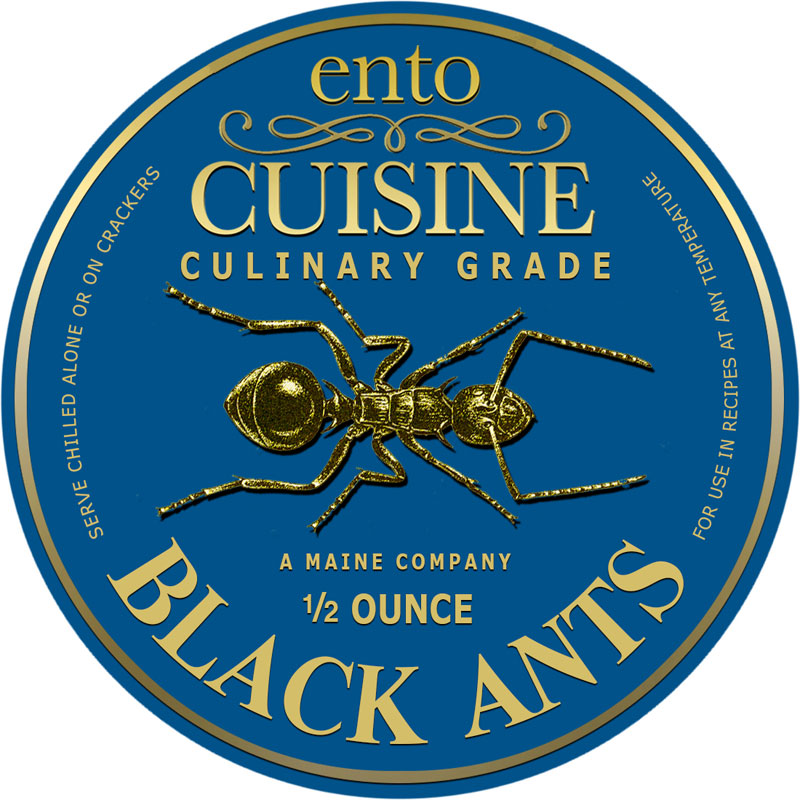

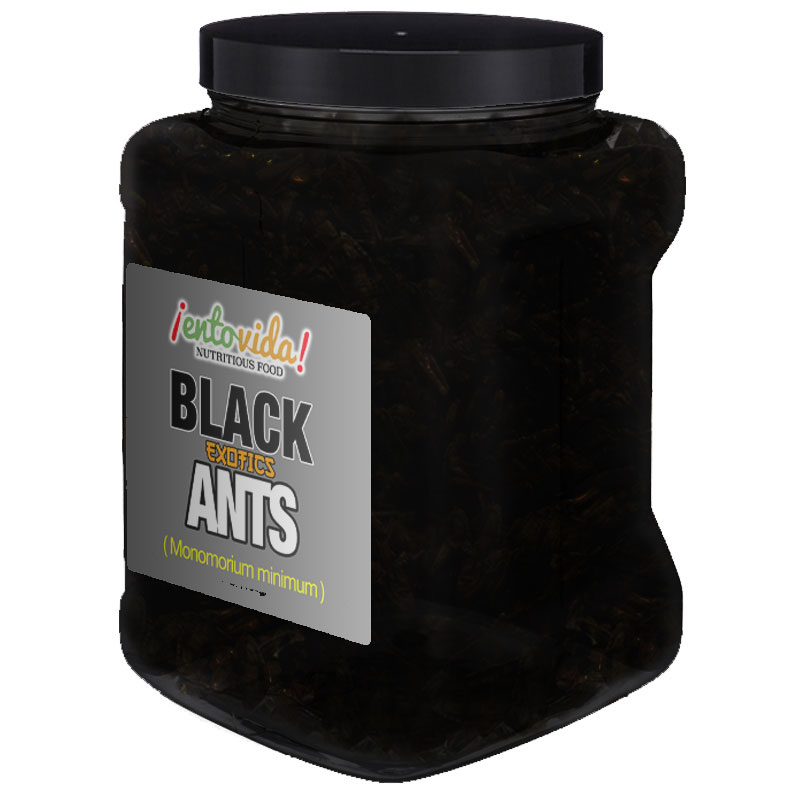
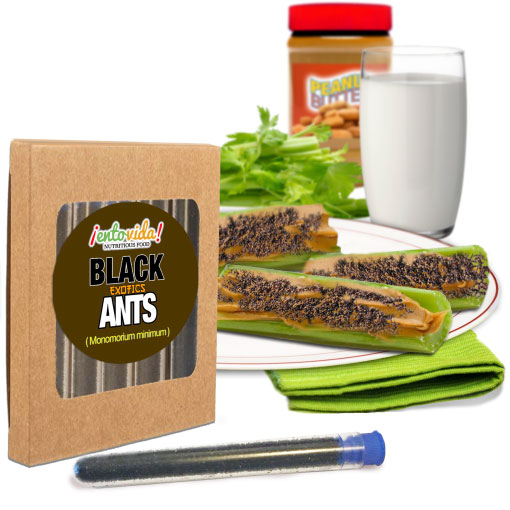
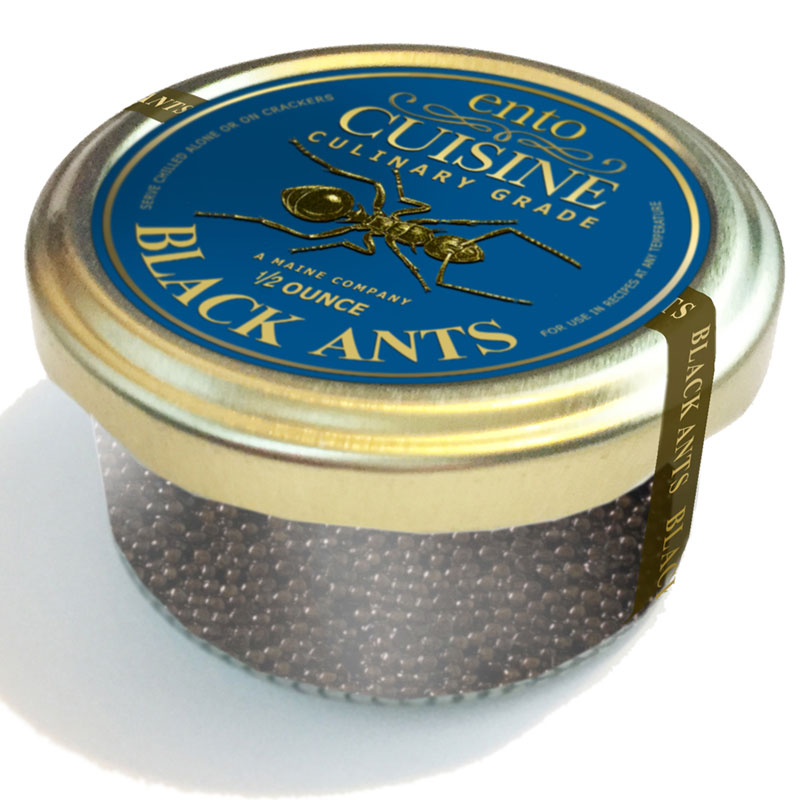


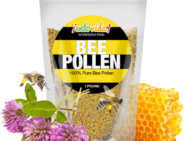

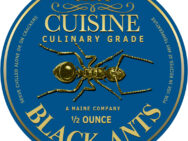

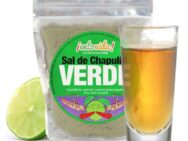
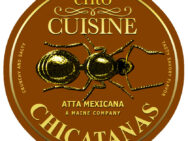



Jack Ince –
Beautiful packaging, wonderful taste, and great customer service!
AjibHab32 –
Awesome.
JessicaOrtega21 –
Love the taste! Many of the other insects are hard for me to eat but for some reason, ants don’t bother me. I like them a lot.
Mika –
Only four stars because the package seems a bit small.